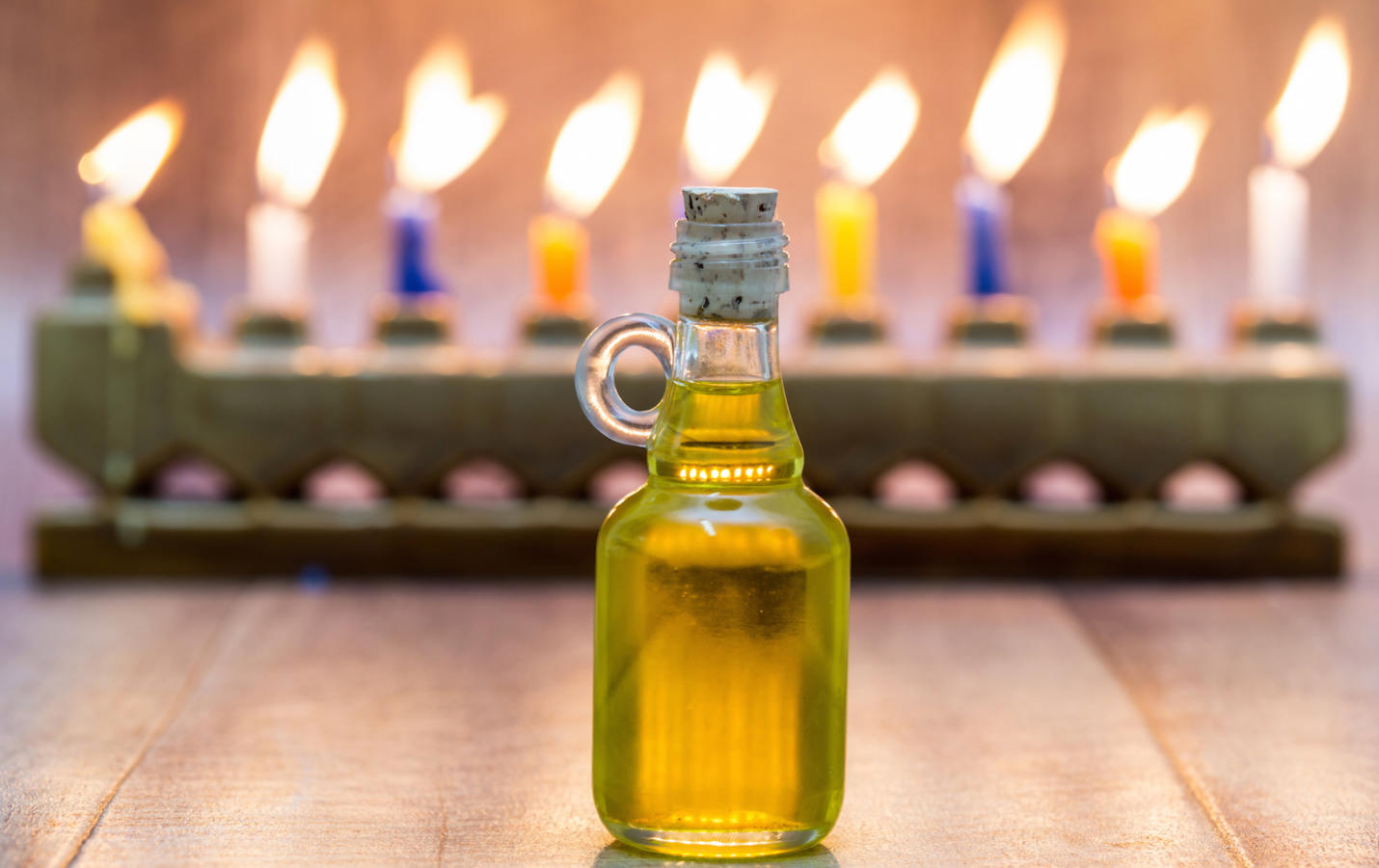The Al Hanisim prayer is recited on two occasions during the Jewish year: Hanukkah and Purim. On these days, we recite it during the three daily prayer services and during Birkat Hamazon, the prayer after meals.
The prayer expresses our gratitude to God “for the miracles and for the redemption and for the mighty deeds and for the victories and for the battles that You performed for our fathers in those days at this time.” We then proceed to retell the miracles of Purim and Hanukkah.
Which miracles? The Hanukkah passage is strange. It recounts the Maccabean victory over the Syrian-Greek superpower — “You delivered the strong into the hands of the weak, the many into the hands of the few, the impure into the hands of the pure, the wicked into the hands of the righteous and the arrogant into the hands of those engaged with Your Torah” — and nothing else.
The omission is staggering. There was a second miracle on Hanukkah, when one jar of oil, enough for one day, burned for eight. That’s why we light the menorah. Why does the holiday’s primary prayer omit any mention of this miracle? It’s like writing a prayer for Passover without the Ten Plagues. A cynic might even say that the military victory wasn’t a miracle at all. Maybe the Jews were just better strategists or more passionate on the battlefield.
With your help, My Jewish Learning can provide endless opportunities for learning, connection and discovery.
When we celebrate a holiday, we look for the exciting and the unusual. It is the supernatural which captures our attention, not the mundane. The commonplace does not deserve a holiday. And so we celebrate Hanukkah as the anniversary of a supernatural miracle by lighting the menorah.
But the act of prayer is fundamentally different. It is a celebration of the routine, of the usual, of God’s gifts which surround us daily. In prayer we don’t look for the once-in-a-lifetime miraculous event to praise and thank God. We look to thousands of small things with which He has blessed us: breathing air, going to the bathroom, eating food, the ability to hear and see and speak, to love and maintain friendships, to think and to read.
All these are mundane activities, yet according to Jewish tradition, they demand the utmost gratitude to God. To thank God only for the supernatural is an insult to the millions of everyday kindnesses he performs.
Winning a war against those bent on destroying one’s way of life demands gratitude, but it is not a celebration. War is always unpleasant, even if one wins. It involves the loss of life and inflicting suffering on others. It is a moment to soberly reflect on the tremendous blessings surrounding us — including the painful and difficult victory over our enemies.
The authors of Al Hanisim exclude the oil miracle as if to say, “Now we are praying, thanking God for His goodness and the blessing He bestows on us.” This decision suggests a larger truth about the act of prayer. When we pray, we are thanking God for those things that, while not as flashy as the miracle of the oil, are nevertheless crucial to our freedom and wellbeing.



